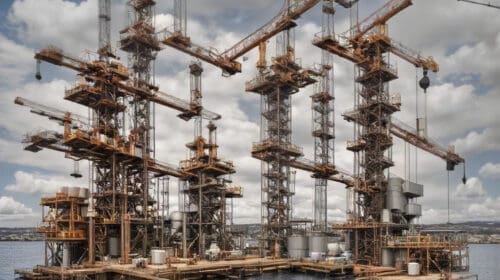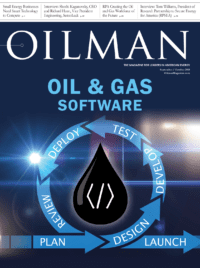There has been a huge leap in the oil and gas space to embrace software to improve productivity on the corporate side, in field locations and at production sites. Over the last few years the industry has been introduced to technology terms such as big data, machine learning, artificial intelligence and IoT or Internet of Things. Blockchain and bitcoin has also entered the oil and gas arena. Data visualization is another popular tool used today to quickly interpret and process data as it is created and displayed. At the same time, there has been a push to transfer all productivity data to remote servers or to a cloud storage. However, the industry has been slow to fully adopt this measure. Maintaining control of critical data is still a priority for many oil and gas companies. There are now several companies in the oil and gas industry creating software tools that improve the way employees complete work assignments in various departments from accounting and procurement to design and production. In this issue of OILMAN we dive into how the oil and gas industry deploys software that allow personnel to do more tasks in less time and how the industry is using technology to pull and review information in the field that was once a manual process. The race is on to connect human capital to technology that will position the oil and gas industry for growth.
The CEO of U.S. Energy Media, Emmanuel Sullivan is a technical writer who has built up his profile in the oil and gas industry. He lives and works in Houston, where he publishes Oilman and Oilwoman on a bimonthly basis, and Energies quarterly, distributing the magazine to energy thought leaders and professionals throughout the United States and around the world. At a time when technology is rapidly changing, he provides an invaluable service to oil & gas, and renewable energy executives, engineers, and managers, offering them both broad and specific looks at the topics that affect their livelihoods. Sullivan earned his BA in Communications at Thomas Edison State University and his MA in Professional Writing at Chatham University.










